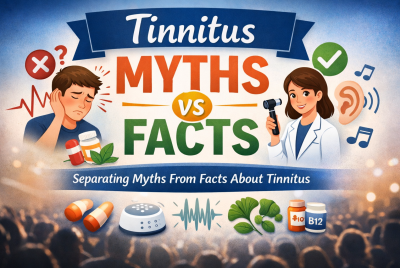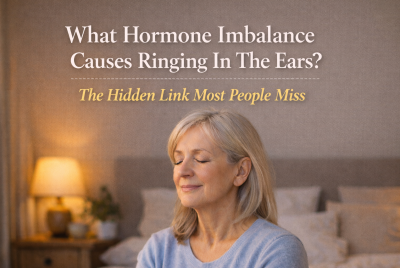Pulsatile Tinnitus Anxiety
Discover effective ways to manage pulsatile tinnitus anxiety. Learn about relaxation techniques, therapies, and expert guidance for relief. Pulsatile Tinnitus, a condition characterized by hearing rhythmic sounds in the ears, can often lead to anxiety and stress. As a researcher and advisor on hearing health, I understand this condition’s impact on an individual’s mental well-being. In this “Pulsatile tinnitus anxiety” article, we will explore the connection between Pulsatile Tinnitus and anxiety and provide helpful suggestions to manage both.
Understanding Pulsatile Tinnitus
Pulsatile Tinnitus is a specific type of tinnitus where individuals perceive rhythmic sounds, such as their own heartbeat, in their ears. It can be caused by various factors, including high blood pressure, vascular abnormalities, or even certain medications. Common symptoms of Pulsatile Tinnitus include hearing pulsing or whooshing sounds that synchronize with the heartbeat.
Is Pulsatile Tinnitus Dangerous?
Pulsatile tinnitus is a symptom rather than a disease and can stem from various underlying causes, some of which may be benign, while others could indicate more serious conditions. Common causes like blood vessel anomalies or muscle spasms are usually not dangerous. However, specific reasons, such as arteriovenous malformations, atherosclerosis, or tumors, might be associated with more significant health risks. Sudden or severe pulsatile tinnitus should be evaluated promptly. Seeking medical attention is essential to determine the exact cause and whether any intervention or treatment is required, ensuring potential underlying dangers are properly addressed.
What Is The Most Common Cause Of Pulsatile Tinnitus?
The most common cause of pulsatile tinnitus is often related to blood flow issues. Vascular factors, such as blood vessel abnormalities (arteriovenous malformations), atherosclerosis, or high blood pressure, frequently lead to this symptom. Turbulent blood flow or increased circulation near the ears can create a rhythmic sound. However, it’s essential to undergo a thorough medical evaluation to pinpoint the exact cause, as other factors like ear-related conditions or even benign muscle spasms can also contribute to pulsatile tinnitus.
Pulsatile Tinnitus In One Ear Only
Unilateral pulsatile tinnitus, experienced in one ear only, can arise from various factors. Vascular issues like blood vessel abnormalities, arteriovenous malformations, or hypertension might be the cause. Eustachian tube dysfunction, ear infections, or muscle spasms within the ear could contribute. Structural problems in the ear or surrounding areas, like a tumor or atherosclerosis, sometimes lead to this symptom. In rarer cases, it could be related to head or neck trauma. Given the diverse range of potential causes, promptly consulting a medical professional is crucial to identify the underlying issue and determine appropriate treatment or management strategies.
Impact Of Pulsatile Tinnitus On Mental Health
Living with Pulsatile Tinnitus can be distressing and may lead to anxiety. These sounds’ constant presence can trigger worry, irritability, and frustration. The uncertainty surrounding the condition can also contribute to heightened anxiety levels. Furthermore, individuals with Pulsatile Tinnitus may experience difficulty concentrating or sleeping, further exacerbating their anxiety and impacting their overall quality of life.
Why Do I Suddenly Have Pulsatile Tinnitus?
The sudden onset of pulsatile tinnitus can stem from several factors. Vascular issues, like a blood vessel anomaly or increased blood flow, might create a rhythmic sound. Conditions such as high blood pressure, arteriovenous malformations, or atherosclerosis can contribute. Ear-related causes involve muscle spasms in the middle ear, fluid imbalance, or even earwax blockage. Infections or inflammation within the ear or surrounding areas might trigger the symptom. Occasionally, head and neck trauma could lead to pulsatile tinnitus. Lifestyle factors, like excessive caffeine or stress, can exacerbate perceived symptoms. Swift evaluation by a medical professional is advised to pinpoint the underlying cause and guide appropriate treatment for sudden pulsatile tinnitus.
Can Anxiety Cause Pulsatile Tinnitus?
Pulsatile tinnitus, a rhythmic sound in the ears matching the heartbeat, can be linked to various factors, including vascular conditions like blood vessel abnormalities or turbulent blood flow. While anxiety might heighten awareness of bodily sensations, it’s unlikely to cause pulsatile tinnitus directly. However, anxiety could indirectly exacerbate perceived symptoms or influence blood pressure, potentially impacting tinnitus severity. If experiencing pulsatile tinnitus, consulting a healthcare professional is crucial to identify the underlying cause and determine appropriate management, as it could stem from vascular issues, ear-related problems, or other medical conditions.
Can Pulsatile Tinnitus Caused By Stress Go Away?
Pulsatile tinnitus linked to stress might alleviate as stress levels decrease. Stress can exacerbate tinnitus perception by heightening awareness of bodily sensations and affecting blood pressure. If stress reduction techniques, such as relaxation exercises, mindfulness, or therapy, successfully manage stress, the intensity of pulsatile tinnitus could diminish. However, it’s vital to consider other potential underlying causes of pulsatile tinnitus, like vascular issues or medical conditions. If the symptom persists despite stress-reduction efforts, a thorough medical evaluation is recommended to rule out any serious underlying problems and determine appropriate treatment options.
Coping Strategies For Pulsatile Tinnitus Anxiety
How Do You Deal With Tinnitus Anxiety?
Managing tinnitus-related anxiety involves several strategies. Firstly, educating oneself about tinnitus and its causes can reduce fear and uncertainty. Practicing relaxation techniques like deep breathing, meditation, and progressive muscle relaxation can help alleviate anxiety. Cognitive behavioral therapy (CBT) can assist in changing negative thought patterns associated with tinnitus. Utilizing white noise or calming sounds can distract from tinnitus and promote relaxation. Engaging in regular physical activity can improve overall well-being and decrease anxiety. Support from friends, family, or tinnitus support groups can provide emotional comfort. If anxiety remains overwhelming, seeking professional help from therapists or counselors experienced in tinnitus and anxiety management is advised.
Seeking Medical Help And Diagnosis
It is essential to consult a healthcare professional who specializes in audiology or otolaryngology to diagnose the underlying cause of Pulsatile Tinnitus. Identifying and addressing the root cause can alleviate anxiety.
Pulsatile Tinnitus Treatment
Pulsatile tinnitus treatment varies based on its cause. Addressing vascular issues may involve lifestyle changes or surgery. For ear-related causes, managing infections or blockages is vital. Relaxation techniques, cognitive behavioral therapy, and sound therapy can help. A thorough medical assessment is critical to identify the underlying cause and determine the most effective treatment approach. Consulting specialists like otolaryngologists, audiologists, or vascular experts may be necessary for comprehensive care.
Developing A Support Network
Connecting with others who have Pulsatile Tinnitus or joining support groups can provide a sense of belonging and understanding. Sharing experiences and coping strategies can be invaluable in managing anxiety.
Relaxation Techniques And Stress Management
Relaxation techniques and stress management are crucial for alleviating pulsatile tinnitus-related anxiety. Deep breathing exercises, meditation, and progressive muscle relaxation can help reduce stress levels and improve overall well-being. Mindfulness techniques aid in redirecting focus away from the tinnitus sound. Engaging in regular physical activity, like walking or yoga, promotes relaxation and reduces anxiety. Cognitive behavioral therapy (CBT) can assist in reframing negative thought patterns associated with tinnitus. Creating a calm environment with soothing sounds or white noise can mitigate tinnitus perception and ease anxiety. Seeking professional help from therapists experienced in tinnitus and anxiety management can provide personalized strategies for coping effectively.to pinpoint the exact cause, as other factors like ear-related conditions or even benign muscle spasms can also contribute to pulsatile tinnitus.
Lifestyle Changes To Manage Pulsatile Tinnitus Anxiety
Healthy Eating Habits
A balanced diet rich in vitamins and minerals can support overall well-being. Avoiding excessive consumption of caffeine, alcohol, and processed foods may help reduce Pulsatile Tinnitus symptoms.
Regular Exercise And Physical Activity
Engaging in moderate physical activity, such as walking, swimming, or cycling, can improve blood circulation and promote relaxation. Exercise also releases endorphins, which can enhance mood and reduce anxiety.
Adequate Sleep And Rest
Establishing a consistent sleep routine and ensuring sufficient rest can contribute to better mental health. Creating a calm and comfortable sleep environment and practicing relaxation techniques before bedtime can help improve sleep quality.
Cognitive Behavioral Therapy (CBT)
CBT is a therapeutic approach that can be beneficial for individuals experiencing anxiety related to Pulsatile Tinnitus. This therapy focuses on identifying negative thought patterns and developing coping strategies to challenge and modify them. Techniques such as cognitive restructuring and exposure therapy can help individuals reframe their perception of Pulsatile Tinnitus and reduce anxiety levels.
Alternative Therapies And Remedies
While there is no cure for Pulsatile Tinnitus, specific alternative therapies, and remedies may provide relief from anxiety symptoms:
Mindfulness And Meditation
Practicing mindfulness and meditation techniques can promote relaxation and reduce anxiety levels. Being present at the moment and accepting the sounds without judgment can alleviate distress.
Acupuncture And Chiropractic Care
Some individuals find relief from Pulsatile Tinnitus through acupuncture or chiropractic treatments. These alternative therapies aim to rebalance the body’s energy flow and may provide symptom relief.
Herbal Supplements And Natural Remedies
Some herbal supplements, such as ginkgo biloba and melatonin, have been studied for their potential benefits in managing tinnitus symptoms. However, consulting with a healthcare professional before starting any supplements is crucial.
Yoga Practices
Yoga offers benefits for pulsatile tinnitus anxiety. Gentle yoga poses, deep breathing, and meditation techniques can reduce stress and promote relaxation. Stress reduction through yoga might help manage tinnitus perception and enhance overall well-being. However, consulting a healthcare professional familiar with yoga practices and tinnitus management is advisable for tailored guidance.
Importance Of Self-Care
Engaging in self-care activities is essential for managing anxiety associated with Pulsatile Tinnitus:
Taking breaks And Engaging In Hobbies
Allowing oneself regular breaks from stressful situations and dedicating time to enjoyable activities can help distract from the symptoms and reduce anxiety.
Practicing Self-Compassion And Positive Affirmations
Being kind to oneself and using positive affirmations can help individuals cope with the challenges of living with Pulsatile Tinnitus. Accepting the condition and focusing on self-care can foster a more positive mindset.
Exploring Relaxation Techniques And Hobbies
Engaging in activities that promote relaxation, such as reading, painting, or gardening, can help individuals unwind and reduce anxiety levels.
Seeking Professional Help
If Pulsatile Tinnitus anxiety persists or significantly impacts daily life, it is essential to seek professional help. A healthcare professional can assess the severity of anxiety symptoms and recommend appropriate therapy options or treatments tailored to individual needs.
FAQs About Pulsatile Tinnitus Anxiety
Can anxiety cause Pulsatile Tinnitus?
While anxiety itself may not directly cause Pulsatile Tinnitus, it can exacerbate the symptoms or increase one’s perception of the sounds. Stress and anxiety can make individuals more aware and sensitive to their tinnitus symptoms.
Is Pulsatile Tinnitus permanent?
Pulsatile Tinnitus can be temporary or chronic, depending on the underlying cause. It is essential to consult with a healthcare professional to determine the cause and potential treatment options for Pulsatile Tinnitus.
Can stress worsen Pulsatile Tinnitus symptoms?
Yes, stress can worsen Pulsatile Tinnitus symptoms. High-stress levels can amplify the perception of tinnitus sounds and increase distress. Managing stress through various techniques and coping strategies can help alleviate symptoms.
How to stop pulsing in the ear?
Stopping pulsing in the ear requires identifying and addressing the underlying cause. Consultation with a medical professional, such as an otolaryngologist or audiologist, is essential for proper diagnosis and personalized treatment options.
Do medications worsen pulsatile ear ringing?
Certain medications can potentially worsen pulsatile ear ringing, although it depends on the specific medication and individual circumstances. Pulsatile tinnitus can have various underlying causes, and some medications may have side effects contributing to or exacerbating the condition. It is essential to consult with your healthcare professional or a specialist, such as an otolaryngologist, who can evaluate your specific situation and make appropriate recommendations.
Pulsatile Tinnitus Anxiety – Conclusion
Living with Pulsatile Tinnitus can be challenging, and anxiety is a common companion for many individuals. By understanding the connection between Pulsatile Tinnitus and anxiety, exploring coping strategies, making lifestyle changes, considering therapies, and practicing self-care, it is possible to manage and reduce anxiety levels associated with this condition. Remember, seeking professional help is crucial, and each person’s journey may be unique. With the right support and strategies, it is possible to improve overall well-being and regain a sense of control.
Disclaimer
This article is for informational purposes only and does not substitute professional medical advice. Always consult a licensed healthcare provider before beginning new treatments, supplements, or exercise programs for tinnitus or related conditions.






